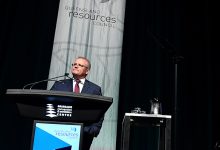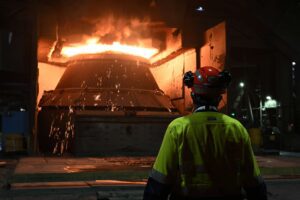The Morrison government looks set to re-heat some outdated arguments to push a ‘technology investment target’ to avoid adopting a long-term target for the decarbonisation of the Australian economy.
As reported in The Australian, the Morrison government is considering abandoning any plans for the adoption of a long-term emissions goal, particularly a commitment to a net zero emissions target and would instead look to implement “investment targets” for technologies.
According to reports, the Morrison government intends to present this ‘technology investment target’ to the rest of the world through the next round of UN climate change negotiations, as part of its ‘long term’ efforts for reducing greenhouse gas emissions.
While Morrison did not confirm the reports in a doorstop interview in Melbourne, the prime minister made clear that he was opposed to the idea of putting a price on carbon pollution, and claimed that no one has come up with a climate change policy that “won’t cost jobs”.
“What I’ve said is that we favour technology over taxation. What I’ve said is that anything we sign up to will be signed up to if we were to go down that path, having thoroughly looked at what is the impact on jobs, what is the impact on electricity prices? What is the impact on rural and regional Australia?” Morrison said.
“Currently no one can tell me that going down that path won’t cost jobs, won’t put up your electricity prices, and won’t impact negatively on jobs in the economies of rural and regional Australia. And my Government is absolutely committed to the jobs of rural and regional Australians.”
Morrison’s claim ignores numerous assessments that show Australia would be more prosperous if it took ambitious action on climate change, including assessments from the CSIRO that said the portion of Australians would spend significantly less on electricity under a shift to 100 per cent renewables.
The CSIRO’s Australian National Outlook report found bold action could lead to GDP growth of 2.76% to 2.8% annually, a 90% increase in real wages and net zero emissions by 2050.
The idea of focusing on technology investment recycles an old argument that governments should look to support the development of new technologies to drive down costs, before taking any steps to actually deploy the technology. It is an approach that has been criticised as a guise to delay action on climate change although it is commonly promoted by contrarians such as Bjorn Lomborg.
Labor climate change spokesperson Mark Butler says it is a repeat of Howard-era tactics used in an attempt to avoid emissions targets being included within the Kyoto Protocol negotiated in the 1990s.
“[Morrison’s] latest thought bubble of a “technology target” is just a throwback to the Howard era when he and George W Bush rejected emissions reduction targets in the Kyoto Protocol in favour of a so-called “technology approach” which boosted nuclear power and so-called ‘clean coal,’” Butler said.
Morrison’s new ‘technology over taxation’ mantra borrows the argument peddled by Lomborg, a Danish academic who has long opposed increasing action to reduce global greenhouse gas emissions, and instead argues for funds to be directed towards research and development, rather than being spent on projects that actually reduce emissions.
It’s a concept that may have made sense several decades ago when renewable energy technologies were still making their way out of the labs and into the market. But wind and solar have become well established as the lowest cost sources of new electricity generation, and the time has come to focus on their deployment rather than waiting for them to become even cheaper than they are already.
Lomborg’s ideas were favoured by Abbott era environment minister Greg Hunt, who tried to allocate $4 million in taxpayer funds to pay for Lomborg’s appointment to an Australian university, and who cited the climate change contrarian’s research in his opposition to the carbon tax.
Speculation that the Morrison government would adopt a ‘technology investment target’ is a clear outcome of the ongoing conflict within the Coalition over climate change policy, which remains as divided as ever over Australia’s long-term emissions reduction targets.
In recent weeks, moderate Liberal parliamentarians broke ranks to call for the government to adopt a net zero emissions target, as has already been adopted by every State and Territory government across Australia and has now been endorsed by the Business Council of Australia.
These calls have been countered by a clear signal from the Nationals, including leader Michael McCormack, who made it clear in an interview with ABC Insiders that the coalition partner would not back a move to adopt a zero emissions target.
If the Morrison government were to adopt a ‘technology investment target’ as an alternative to a zero emissions target, it would contradict its own insistence that it is focused on outcomes rather than particular technologies.
Successive Coalition governments have opposed the introduction of policies that would support the increased uptake of renewables, arguing that it was more important to take a ‘technology neutral’ approach to reduce emissions and investing in the energy sector.
A ‘technology investment target’ would essentially see the government prioritise investment as the core goal, over the outcome of reducing greenhouse emissions, an outcome that would be more directly addressed by setting both interim and long-term emissions reduction policies and is the key to avoiding the worst impacts of climate change.
It is questionable whether an investment target would be acceptable to the global community, which will convene the next round of international climate talks in Glasgow at the end of the year, with the expectation that countries will come with increased emissions reduction targets in line with the goals of the Paris Agreement, including to achieve zero net emissions in the second-half of the century.
“There is already a whole chapter of the Paris Agreement dedicated to technology plans, recognising that they are just a means to an end and that end should be net-zero emissions by as soon as possible,” the Australia Institute’s climate and energy director Richie Merzian told RenewEconomy.
“If Australia chooses a long term strategy based on ‘technology but not targets’, this is likely to draw criticism from our international peers and undermine what remaining credibility Australia has left on the issue.”
“It is like showing up at a potluck dinner, with only half a meal – it is an incomplete contribution and will be seen as another attempt by the Australian government to shirk its international obligations.”
The adoption of a ‘technology investment target’ also lets the federal government off the hook. While there is scant detail about what an ‘investment target’ would look like, it will almost certainly lean on the private sector to finance the ‘investment’ in new projects and fund further research and development.
What is certain is that the federal government’s primary funder of research and development in clean energy technologies, the Australian Renewable Energy Agency (ARENA), is about to exhaust its funding for renewable energy research grants.
ARENA expects to exhaust its funds by the end of the year, meaning the agency will have no spare cash to support innovation within Australia’s research institutions nor the completion of demonstration projects that are crucial to the successful commercialisation of new technologies.
The ‘technology investment target’ proposal was criticised by the Climate Council, which said it was nonsensical of the Morrison government to think it could reduce Australia’s emissions without effective policy.
“This is magical thinking on the part of Morrison. Companies will simply not invest in new technology without policy direction,” said member of the Climate Council and former chair of ARENA Greg Bourne said.
“The direction has to be reductions in emissions, not a politician’s promise to have anyone but the Government invest.”
“Australia’s international reputation has been tarnished by our government’s poor record on climate action. We cannot turn up to the United Nations climate summit in Glasgow in November with more dodgy tricks,” Bourne added.










